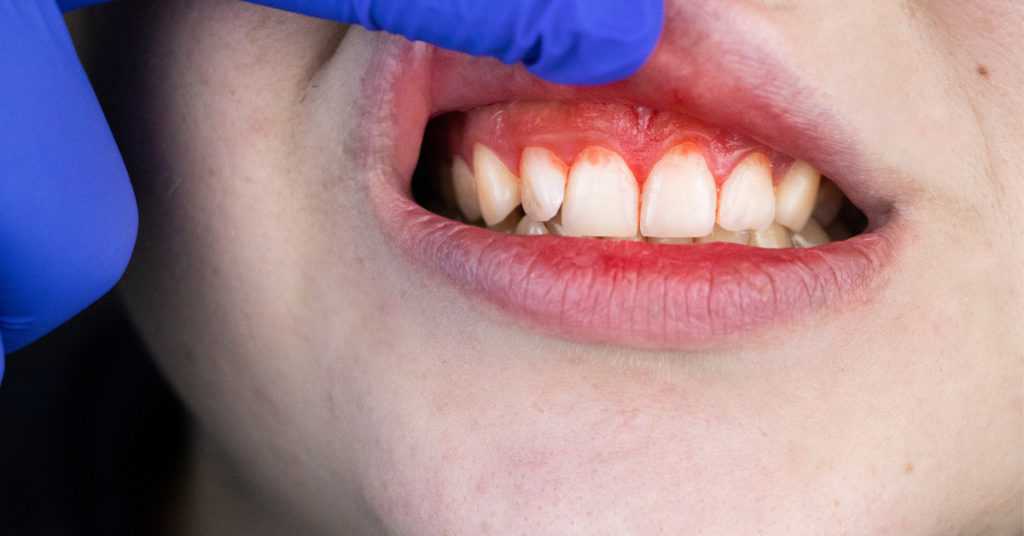We all know brushing twice and flossing every day is key to keeping your teeth healthy. However, caries and bleeding gums can not only be warded off by maintaining regular hygiene. There are other factors that may be negatively affecting your oral health. Vitamin D deficiency can be a reason for your bad oral health.
Many people never follow oral hygiene recommendations and cut sugar yet exhibit no dental problems. Meanwhile, there are some who do brush, floss, and eat well and still have issues with their teeth. If this is the case with you, then Vitamin D deficiency can be the reason. And eating a diet with recommended amounts of Vitamin D is what you need.
Out of the number of nutrients contributing to the better health of teeth, vitamin D is of prime importance. The way our body manages minerals is guided by calcium balance and the immune system. And they are both balanced by vitamin D. Therefore, eating a diet with recommended amounts of Vitamin D is what you need. However, if you have severe pain or swelling in your teeth it is recommended to visit a dentist first. You can consult with the Best Dentists in Pakistan via Marham.
Vitamin D Deficiency and Recommended Intake
Vitamin D deficiency refers to a lack of vitamin D in your body. This vitamin is different in that your skin produces it through exposure to sunshine. It is why Vitamin D is called sunshine vitamin by some people. There are some foods that offer vitamin D as well. We have included a list of Vitamin D foods in this article at the end. Make sure to give this food list a read to avoid vitamin D deficiency.
Recommended Intake of Vitamin D (RDA)


According to the National Institutes of Health, the recommended daily intake of Vitamin D according to age is:
0 – 12 months: 400 IU
1 – 70 years: 600 IU
> 70 years: 800 IU
Vitamin D Deficiency and Oral Diseases
Two of the most common oral diseases caused due to vitamin D deficiency are:
- Tooth decay
- Bleeding gums
Tooth decay is most common in kids and leads to the blackening and decaying of an affected tooth. At the same time, bleeding gums are considered the first sign of gum disease. When cleaning and polishing your teeth is not working, it’s time to look for some deep-rooted cause of your oral health issues. Vitamin D plays a vital role in preventing tooth decay and bleeding gums.
1. Tooth Decay
Tooth decay is not necessarily a result of poor oral hygiene. Vitamin D deficiency can cause tooth decay because of its effects on the immune system. You must have heard about the importance of calcium for teeth. But, do you know that vitamin D helps your digestive system to absorb calcium from your diet. While Calcium and phosphorus are the raw materials that create your tooth enamel, Vitamin D helps them function properly.
Moreover, this vitamin is also required by dentin that is present under the enamel in your teeth. Dentin contains live cells that the body uses to protect the blood supply and nerve inside your tooth.
Your dentin contains ‘guardian’ cells that sit at the border of your enamel and release immune factors. They can repair if dentin is damaged, but they cannot function if your body has vitamin D deficiency. It is the reason when your vitamin D levels are low; your defense system cannot protect and repair the infected tooth.
2. Bleeding Gums
Your mouth is an extension of your gut microbiome, where 80 percent of the immune system is primed. Treatment of bleeding and inflammation in gums does not only require efforts towards oral hygiene, but it may also indicate trouble in the immune system. Vitamin D is a critical factor in regulating the immune system and promoting the production of required cells.


Manage Your Vitamin D Levels
These are some of the simple lifestyle and dietary changes to keep your vitamin D levels under the normal range:
Lifestyle Changes:
Get 30 minutes of natural sunlight per day.
- Remember to keep face and arms exposed; otherwise, your body won’t absorb Vitamin D
- Geography: Above 37 degrees latitude, sunlight won’t convert to vitamin D in the skin
Diet:
Have 1-2 servings of vitamin D-rich foods per day Foods that strengthen teeth need to supply a rich source of dietary vitamin D3. These include:
- Fatty fish (Cod Liver Oil)
- Mushrooms
- Organ meats
- Eggs
- Butter, yogurt, cheese (from pasture-raised animals)


The Final Thoughts
According to a comprehensive dental review, Vitamin D deficiency is strongly associated with oral disorders. It has been linked to an increased incidence of tooth defects, caries, periodontitis, and treatment failure. Therefore, we must focus on adequate intake of vitamins and minerals along with oral hygiene to avoid oral problems. Many experts recommend sticking to food as the long-term way to manage vitamin D. However, if you are deficient (below 25ng/ml), you should consult with your health care professional regarding Vitamin D supplementation.
FAQs
1. Can vitamin D heal cavities?
Yes, adequate vitamin D intake is linked to better oral health and reduced incidence of dental issues like cavities.
2. What vitamin deficiency causes bad teeth?
Vitamin D and C deficiency and less calcium and phosphorus intake can result in bad teeth.
3. Does vitamin D strengthen teeth?
Yes, Vitamin D helps in the formation of bones and teeth along with calcium and phosphorus.
Few Most Popular Dentists In Pakistan:




